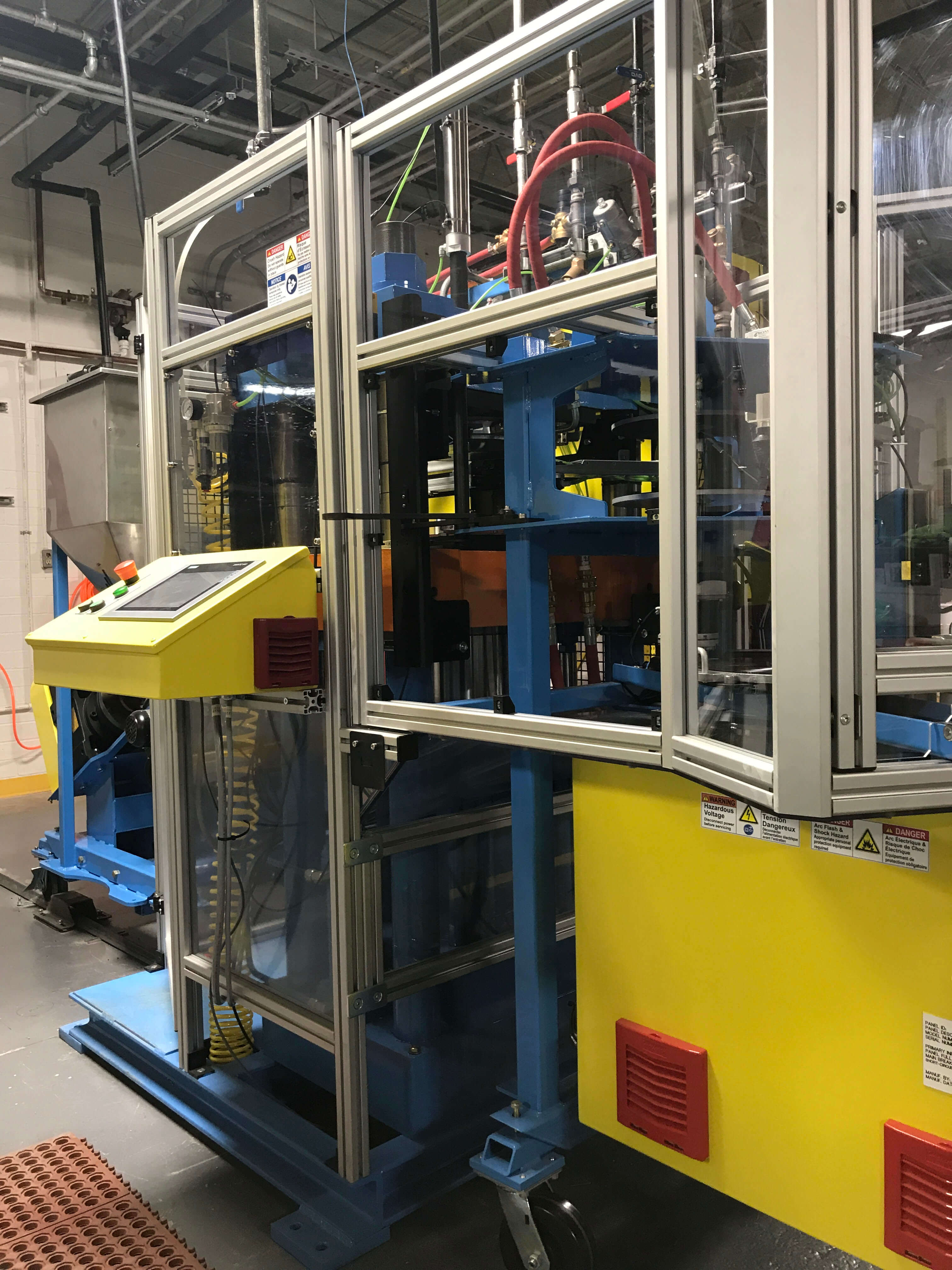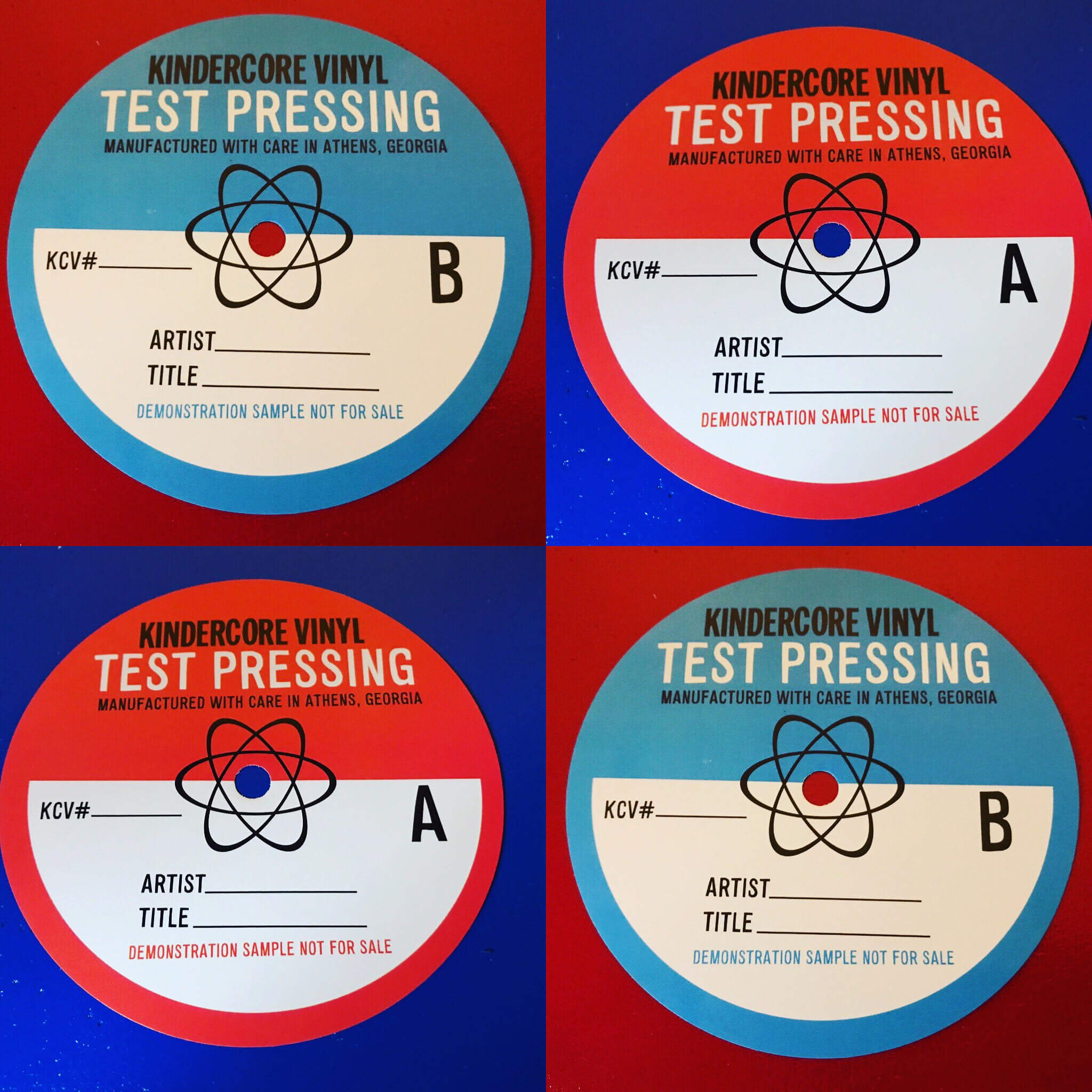This summer, Kindercore Vinyl opened our record pressing plant in Athens, Georgia with brand new, state-of-the-art WarmTone presses from Viryl Technologies. Since the mid-1990s, we have all worked as touring musicians, record label owners, audio engineers, and record store owners before getting into record manufacturing. Having dealt with pressing plants as customers before, we are especially qualified to help you navigate through the complicated process of getting a record made.

Everything we love about listening to records, and all the various issues you can run into while making them, stem from the fact that pressing records is, ultimately, a physical process. Many of us musicians that came of age in the era of CDs and digital downloads tend to think that our work on an album is complete once it is mastered. In vinyl record production, there are still many more decisions to make before pressing begins, and all of those decisions will affect how your record sounds and looks.
MASTERING
Take those tracks you just mastered, for example. Were they mastered specifically for vinyl? If you were planning on using the same masters for your record as you did for digital applications, consider shelling out the extra money to get a separate vinyl master instead. Vinyl records generate their sound from the physical act of running a needle through a groove, so it makes sense that the audio will have different mastering needs than purely digital audio media. You can throw bass at digital all day long, for instance, but if you try the same with vinyl, you might have skipping issues, as excessive low frequencies can literally knock the needle out of the groove.

The Press
CUTTING AND PLATING
Once your music is mastered, it’s time for lacquer cutting and electroplating. This multi-step process produces stampers, the metal plates that press grooves into every chunk of hot plastic that will become your record. (Physical process!) This is the part of pressing that most people outside of the industry are least familiar with, but it is just as important as any other step. Any imperfections in the stampers will be transferred to your record, over and over and over again. Since this is a complicated process involving expensive equipment and highly regulated chemicals, many pressing plants outsource their cutting and plating. Check with friends who have pressed records before to hear their experiences with cutting and plating, and see if you can gather any recommendations.
BELLS AND WHISTLES
A vinyl record is an audio medium, but a record is an art object, too. Many of the decisions you make about pressing your record will involve balancing these dual aspects. Most musicians don’t have an unlimited budget for record pressing, so at some point you are going to have choose which bells and whistles you want to prioritize and make some sacrifices. Picture in your mind your ideal record – how it looks, how it feels in your hands, what it is like opening it for the first time, and of course, how it sounds – then rank your preferences. Is it worth it to you to splurge on a gatefold jacket that can display the panoramic album art of your prog-rock dreams, or is that money better spent on upgrading to 180-gram records that look and feel more impressive than the standard weight? Or should you skimp on the packaging so you can afford to get your album mastered by that one audio engineer whose work is great, but charges a little more than you usually spend? If you want your record to be on color vinyl instead of black, are you willing to accept the minimal loss in audio fidelity that can accompany some colors? (I’m looking at you, metallic gold!) The answers are different for everyone, and you should have some idea of what you want before you start talking to a plant.

Colored vinyl in its raw state
PRESSING PLANTS
Make informed choices about who presses your album! Interested in working with a particular pressing plant? Listen to records you know have been pressed there to check quality, if possible. Reach out to them, and ask for a quote or general information. Gauge the speed and helpfulness of their response. If anything happens during pressing that could cause delays or require additional attention, you are going to want whoever you end up working with to let you know as soon as possible.

Kindercore Test Pressings
Pressing records, especially for the first time, can be an intimidating experience. Luckily, with more record pressing plants opening all the time, there’s never been a better time for modern musicians to find the right plant to guide them through the process.
